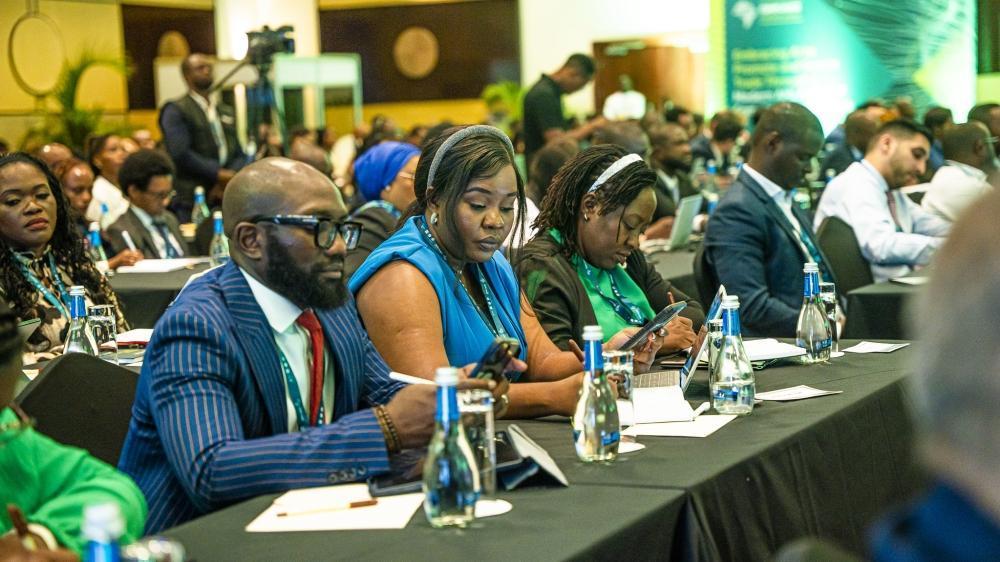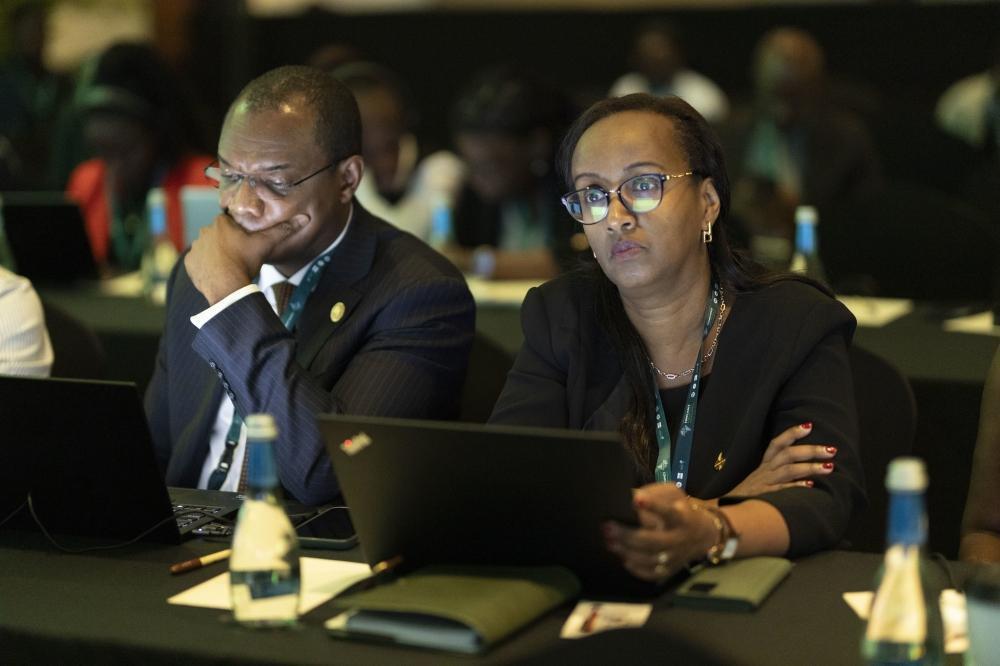Africa-Press – Rwanda. African countries are intensifying measures to prevent being placed on, or returning to the Financial Action Task Force (FATF) grey list.
The FATF grey list identifies countries that have weaknesses in preventing money laundering and terror financing.
Delegates during the African Export-Import Bank (Afreximbank) Compliance Forum (ACF) in Kigali on November 13.
While not as severe as blacklisting, the classification signals potential financial risks, prompting international banks and investors to apply stricter checks, which can make cross-border trade and access to foreign funding more difficult for businesses.
The discussions about the issue took place during the Afreximbank Compliance Forum held in Kigali this week, as as regulators and policymakers called for stronger coordination and sustained political commitment to protect financial integrity.
Delegates during the African Export-Import Bank (Afreximbank) Compliance Forum (ACF) in Kigali on Thursday, November 13.
Some nations, including Nigeria, Senegal, and Côte d’Ivoire, have been on the list before successfully exiting after implementing significant reforms.
However, officials warned that maintaining compliance demands long-term commitment and coordination across sectors, highlighting how African countries can build stronger anti-money laundering and counter-terror financing (AML/CFT) systems while maintaining financial stability.
“It’s not enough for African countries to just follow global recommendations. Each country must take ownership, coordinate internally, and implement the standards effectively across all sectors,’ said Edwin Harris Jr., the Director General of the Inter-Governmental Action Group against Money Laundering in West Africa (GIABA).
“Compliance cannot be left to a single institution; it requires engagement from regulators, banks, and other stakeholders. Only by adapting these frameworks to our local contexts can we secure trade, protect our financial systems, and avoid being placed back on the grey list,” he added.
He noted that GIABA has intensified its capacity-building programmes, providing member states with technical support to strengthen domestic monitoring mechanisms and prevent grey-listing.
From Nigeria’s experience, Felix Obiamalu, the General Counsel of the Nigerian Financial Intelligence Unit (NFIU), said the country’s repeated placement on the grey list served as a wake-up call that drove institutional reform.
“Nigeria has been on the grey list three times. We institutionalised reforms to ensure they outlive political cycles. Passing laws wasn’t the hardest part but ensuring they worked was,” he said.
Idris Diop, the Compliance Director at Afreximbank, echoed that African nations can stay off the FATF grey list by strengthening regulatory frameworks and ensuring effective enforcement of anti-money laundering and counter-terrorism financing measures.
“The problem of being on the grey list is not about sanctions; it’s about not having the right regulatory framework to fight money laundering and terror financing. Once a country fixes those weaknesses and aligns with international standards, it can successfully exit the list,” Diop explained.
He noted that several countries, including Nigeria and South Africa, have recently been delisted after extensive reforms to strengthen monitoring systems, educate financial actors, and update legislation.
Jeanne Pauline Gashumba, Director General of Rwanda’s Financial Intelligence Centre (FIC), said the best way to exit the grey list is never to get on it.
“That means building capacity, coordinating across agencies, and maintaining transparency in both policy and practice. Grey-listing can slow capital inflows, raise transaction costs, and damage reputations that small economies may take years to recover from,” she noted.
For More News And Analysis About Rwanda Follow Africa-Press









